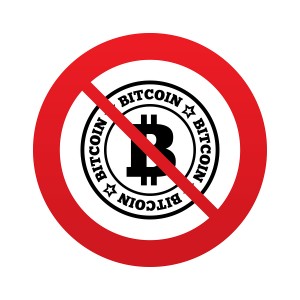What may perhaps be the first of many countries to do so in the future, the National Assembly of Ecuador has voted to prohibit (PDF) the peer-to-peer decentralized digital currency bitcoin and other virtual currencies. However, the country has plans to produce guidelines for the establishment of a new state-owned digital currency.
Ninety-one legislators voted in favor of the amendments to the nation’s present financial and monetary laws. Since the National Assembly voted for the bill, it will be sent to the desk of President Rafael Correa for his signature to make it official.

Here is what the National Assembly of Ecuador said in a statement:
“Electronic money will stimulate the economy, it will be possible to attract more Ecuadorian citizens, especially those who do not have checking or savings accounts and credit cards alone. The electronic currency will be backed by the assets of the Central Bank of Ecuador.”
La Comunidad Bitcoin Ecuador, the country’s largest bitcoin organization, sent an open letter to lawmakers pleading for more transparency and respect consumer rights when launching a new digital currency, notes CoinDesk.
“Ecuador, as a pioneer in the creation of a digital state-run currency, must use methodologies that respect fundamental rights. The digital-currency system must be verifiable, and its code must be published as free software, to ensure the system’s privacy through algorithms.”
Although the move is not necessarily making the bitcoin community panic considering that Ecuador wasn’t exactly a central hub of virtual currency development, some are concerned that a growing number of states will follow the same path of banning or intensely regulating bitcoins and other cryptocurrencies.
In February, Ecuador held its very first bitcoin meetup, and the turnout was a lot larger than initially had been expected. Local reports identified exuberant passion and the technical knowledge of virtual currencies.
Last month, the Bolivian central bank officially prohibited digital currencies, which now makes Ecuador the second South American nation to do so.




